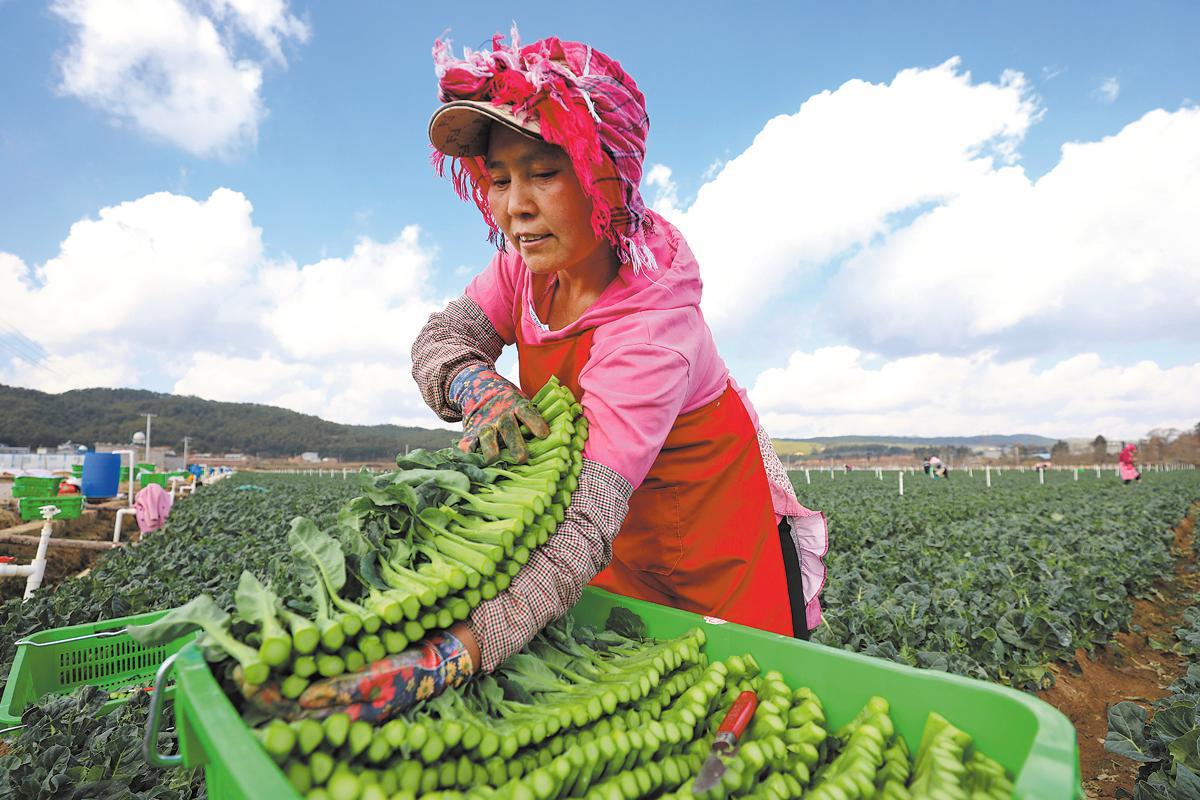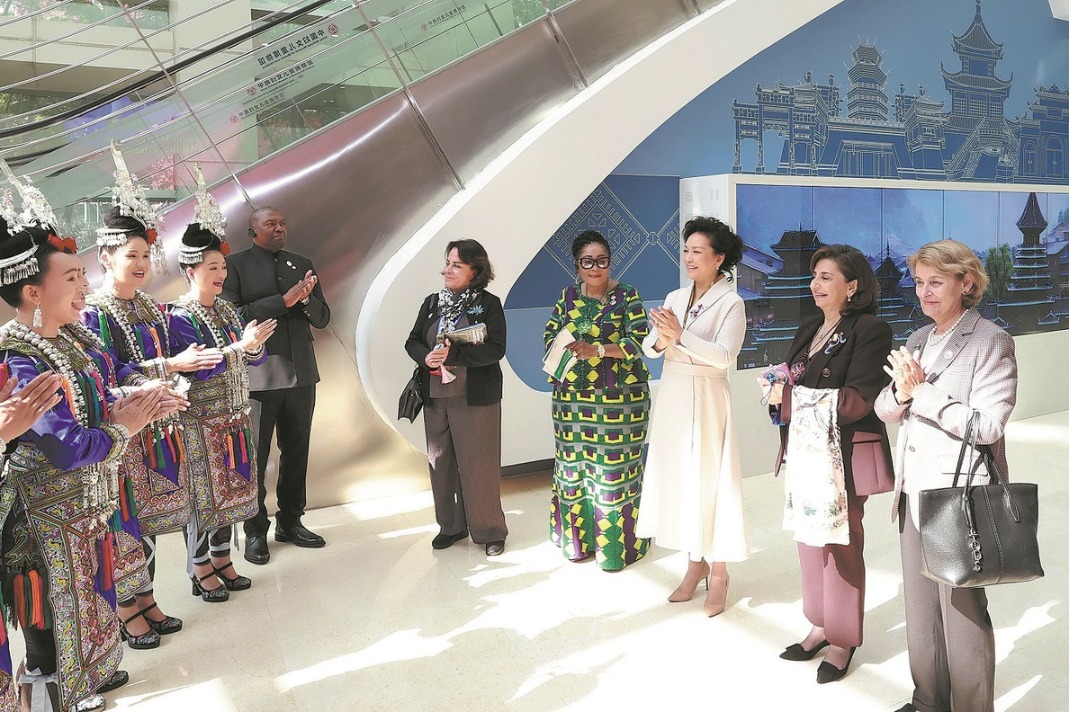Yunnan sprouting into nation's 'vegetable basket'
Poverty alleviation model expanded to enrich one of China's most fertile provinces


Leafy ambitions
The agricultural reinvention of Yunnan extends to the vast, fertile plains of Luliang county in Qujing, the largest flatland on the Yunnan-Guizhou Plateau.
The unique geography and climate of the county in the east of the province have made it an agricultural powerhouse, and the thriving vegetable industry is feeding cities across China and reaching tables as far away as Dubai.
With 6,000 hectares of cultivated land yielding 2.45 million tons of vegetables in 2023, Luliang generated 7 billion yuan, nearly half the county's total agricultural output.
The region has an average annual temperature of 15.2 C, a frost-free period of 335 days, fertile soil and abundant water resources, making year-round production of vegetables possible.
"Thanks to these favorable natural conditions, we can grow a wide variety of fresh, eco-friendly vegetables all year round," said Zhang Raofang, deputy director of Luliang's agriculture and rural affairs bureau.
Italian lettuce, romaine, napa cabbage and Shanghai bok choy are among the stars of the leafy industry. About 93 percent of its harvest is shipped to markets from Beijing to Dubai, Zhang said.
Advanced infrastructure has contributed to the success of the industry. Home to Southwest China's largest cold-chain logistics park, the county dispatches 10,000 tons of vegetables daily, serving the Guangdong-Hong Kong-Macao Greater Bay Area and elsewhere. In 2023, its import-export vegetable trade reached $5.16 million, a 237 percent year-on-year increase.
"The lettuce grown here is thick, crisp and of excellent quality," said Zhang Zixiong, chairman of Yunnan Yuanheng Agricultural Development Corp. His company manages 180 hectares and works with local farmers on another 1,333 hectares.
























